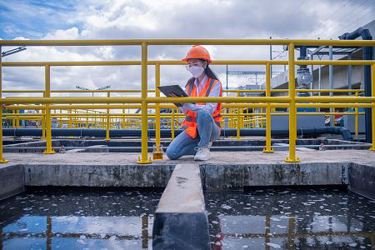Ambitious Federal Wastewater Sampling Plan Hits Privacy, Logistical Issues In Curbing COVID-19


The Centers For Disease Control And Prevention (CDC) and individual states have relied increasingly on wastewater sampling data to determine the prevalence of COVID-19 throughout the country. And while the current administration would like to accelerate this reliance, there have been some roadblocks that demonstrate just how sensitive and critical these data are.
“There’s just one problem with the Biden administration’s plan to monitor the nation’s sewage in the hopes of preventing the next pandemic: Many states are not yet on board,” Politico reported. “Lackluster participation leaves gaping holes in what public officials intend to be a comprehensive early warning system for infectious diseases, rendering the country vulnerable to the next Covid-19 variant or public health crisis.”
Wastewater sampling has proven to be one of the best tools available for tracking COVID-19 case spikes and the rise of new variants. The CDC recently added wastewater analysis data to its national pandemic tracking dashboard and researchers have discovered mysterious coronavirus strains by studying it.
“Untreated wastewater contains a myriad of harmful bacteria — such as E. coli and salmonella — and viruses, including the coronavirus,” per the San Antonio Express-News. “Testing such water can provide early-warning signs of new strains of the coronavirus before an outbreak.”
But despite the potential of analyzing this data, public officials in some places are struggling to collect it.
“State health officials and wastewater experts told Politico that sewage surveillance operations in some areas have grappled with privacy concerns and logistical challenges, such as figuring out how to coordinate dozens of treatment plants routinely sending in sewage samples to a handful of labs and standardizing processing protocols,” according to Politico.
While challenges remain in establishing a network of national data, wastewater scientists remain optimistic that this effort could be a gamechanger in adapting to the wide spread of coronavirus.
“Such a tool, they say, would be instrumental in protecting public health,” Politico added.
To read more about how researchers glean insight from wastewater, visit Water Online’s Wastewater Measurement Solutions Center.
